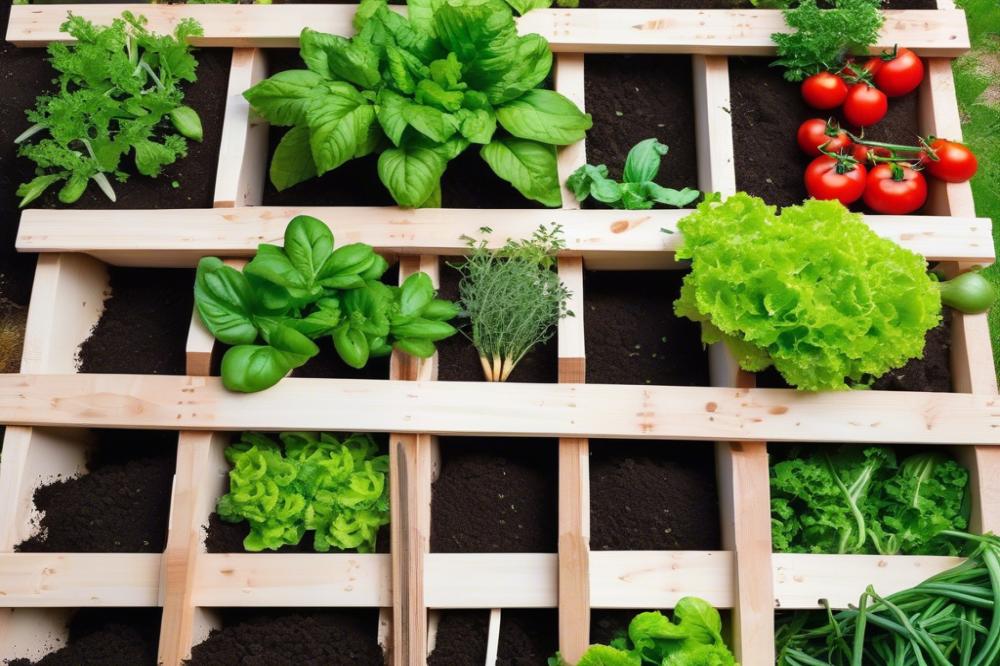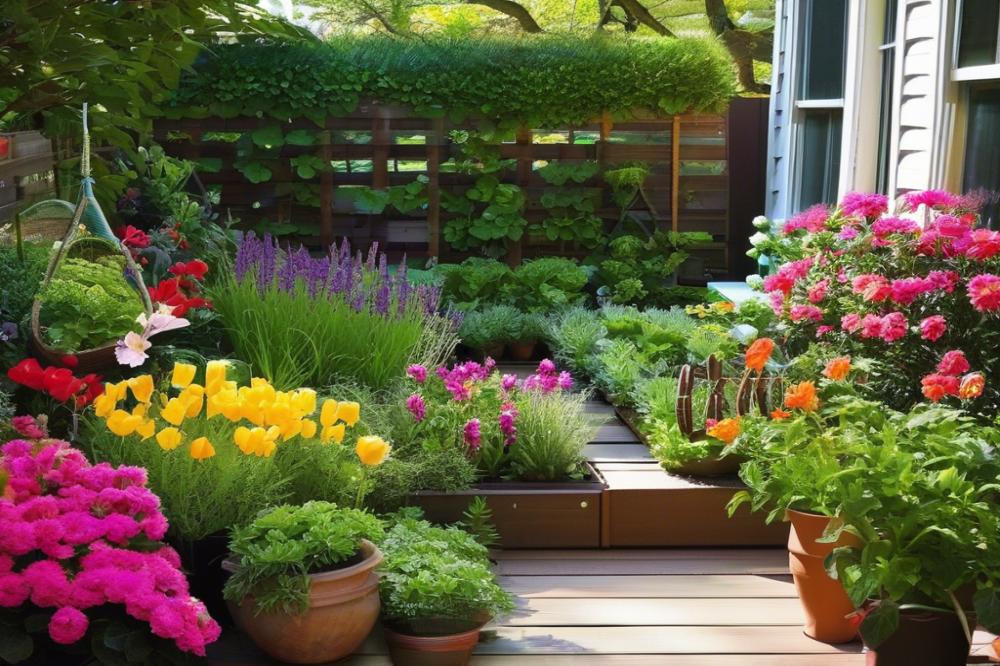Importance of composting in vegetable gardening
composting plays a vital role in vegetable gardening, transforming waste into a valuable resource. It helps to nourish the soil, promoting healthy plant growth. Many gardeners find that using compost can lead to higher yields and more vibrant vegetables. By recycling organic waste, you contribute to a more sustainable environment.
Overview of homemade compost
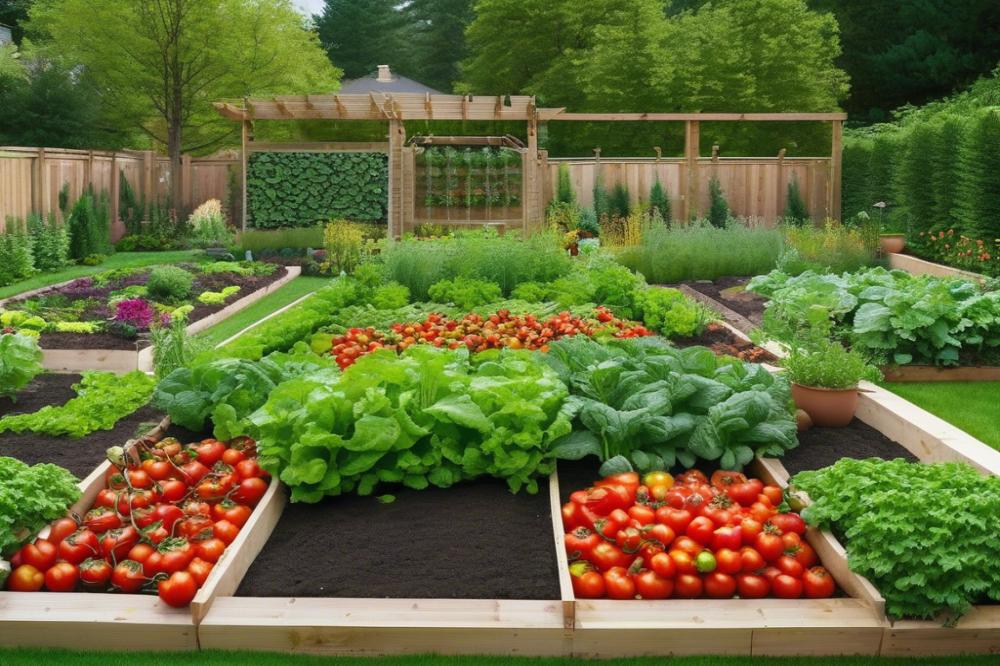

Creating your own compost is simpler than you may think. A compost bin can be set up in your backyard or even in a small space. Collecting kitchen scraps and garden waste allows you to recycle materials that would otherwise go to landfills. This process not only minimizes waste but also produces homemade compost rich in nutrients essential for plant life.
Benefits of Using organic waste for Soil Enrichment
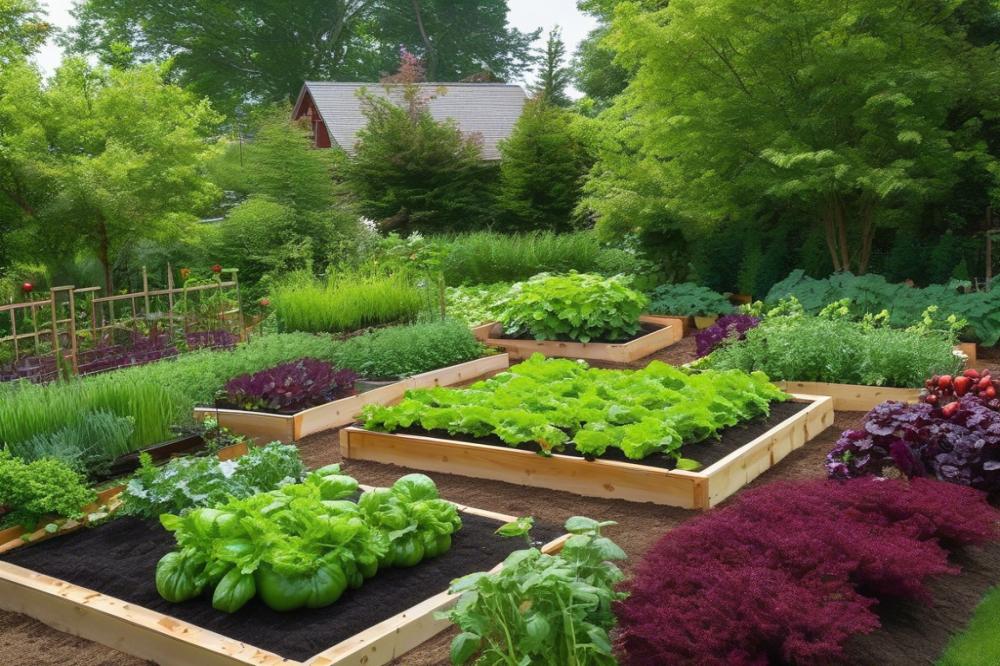

There are numerous compost benefits that every gardener should know. Organic materials like fruits, vegetables, and yard clippings improve soil texture and moisture retention. This natural fertilizer enhances the fertility of your garden while reducing reliance on chemical options. Following a few basic composting tips can turn your kitchen scraps and garden waste into a powerful tool for soil enrichment. Ultimately, adopting these practices contributes to a healthier ecosystem and a more fruitful gardening experience.
Understanding Homemade Compost
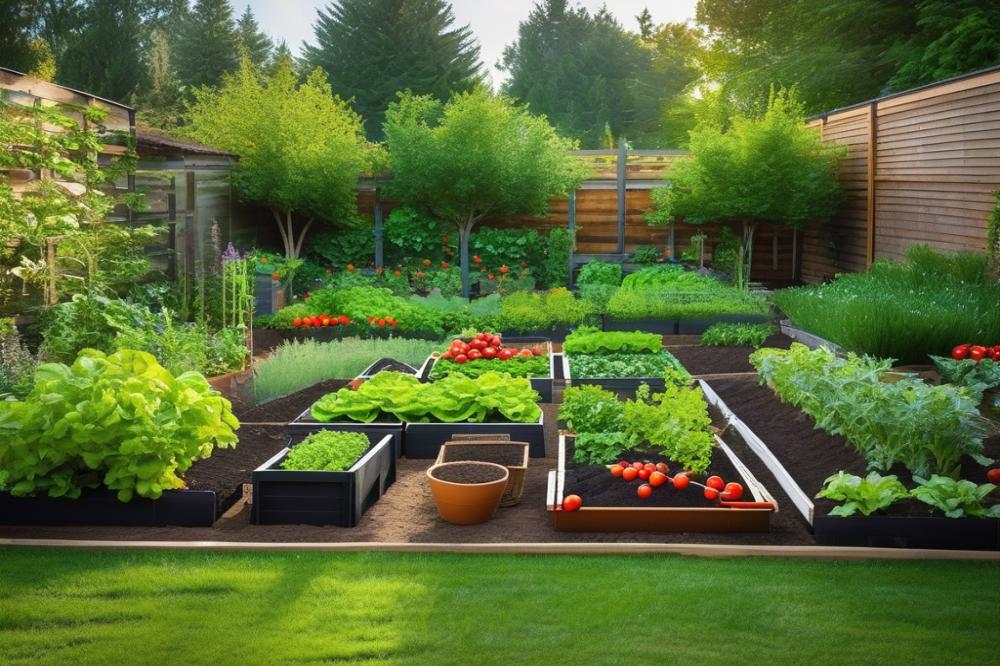

Homemade compost is a rich, organic mixture created from decomposed materials. It isn’t just waste; it transforms organic materials into valuable resources for your garden. Creating your own compost not only reduces landfill contributions but also improves soil vitality.
Key Components: Green Materials vs Brown Materials
The composting process relies on two main types of materials: green and brown. Green materials are fresh, nitrogen-rich items. Examples include grass clippings, fruit peels, and vegetable trimmings. These add essential nutrients to the mixing bowl of life.
Brown materials are dry and carbon-rich. Think of dried leaves, cardboard, and straw. These elements provide structure and proper airflow, crucial for a successful compost bin. Balancing both greens and browns is vital for effective decomposition.
Role of Kitchen Scraps and Garden Waste in Compost
Kitchen scraps play an important part in composting. Instead of tossing out those apple cores or eggshells, throw them in the mix. They decompose and enrich the resulting soil with essential nutrients like calcium.
Garden waste also contributes significantly. Clips from hedges, spent flowers, and old plants help create a nutrient-rich habitat for beneficial microbes. Through diligent composting, you’re not only eliminating waste but also helping foster a healthier garden.
Moreover, compost benefits both the environment and your plants. Using compost enhances soil structure, promotes proper drainage, and stores moisture. Ultimately, enriching your garden soil leads to thriving vegetable growth.
For those intrigued by sustainable gardening, composting is a perfect starting point. Simple composting tips can transform what once was waste into a life-giving resource for your green oasis.
Setting Up Your Compost Bin
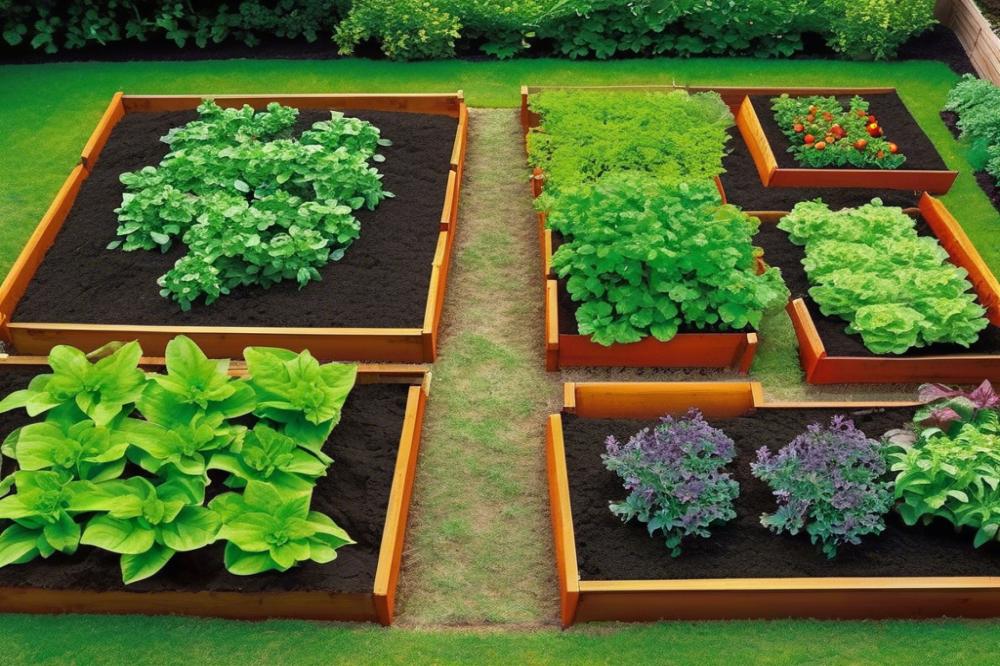

Choosing the Right Compost Bin: Types and Materials
Finding the right compost bin is essential for successful composting. There are various types to choose from. Plastic bins are popular due to their durability and affordability. Wooden bins, however, offer a rustic look and can be made from recycled materials. Some gardeners prefer wire mesh for a simple, open option that allows for airflow. Keep in mind the size of your compost bin; it should be large enough to handle your kitchen scraps and garden waste but not so big that it becomes overwhelming. Each bin type has its distinct benefits. Choose one that fits your lifestyle and composting goals.
Location Considerations for Your Composting Setup
Placement of your compost bin is crucial for effective composting. Select a shady spot to prevent the pile from drying out too quickly. Sunlight can speed up decomposition but also can lead to excessive moisture loss. Accessibility is also important; you’ll want to add kitchen scraps easily and turn the pile when necessary. Make sure the spot is near your garden, so you can quickly add finished compost to your soil. A well-chosen location contributes to the composting process success.
Maintaining a Balance Between Airflow and Moisture
Airflow and moisture levels are vital for compost health. Incorporating air helps encourage the growth of beneficial microorganisms that speed up the breakdown of organic waste. Turning the pile regularly aids in maintaining airflow. This practice mixes materials and prevents the compost from becoming too compact. Moisture is equally important; the compost pile should feel like a damp sponge but not soggy. If it’s too dry, add water or green materials like kitchen scraps. If it’s too wet, mix in dry browns such as dried leaves or paper. Balancing these elements enhances soil enrichment and ensures a successful composting journey.
The Composting Process
Creating your own compost is a rewarding journey that starts with understanding the composting process. First, gather a mix of organic waste. This can include everything from kitchen scraps like vegetable peels to garden waste such as leaves and grass clippings.
Layering is crucial for optimal decomposition. Start with a base layer of coarse material, like small branches or straw. This improves airflow. Next, alternate layers of “greens” and “browns.” Greens include nitrogen-rich items like fruit scraps, while browns consist of carbon-rich materials like dried leaves. Aim for a balance. A good ratio is about one part greens to two parts browns.
Turning and mixing compost is essential for healthy breakdown. The process allows oxygen to circulate, which speeds up decomposition. Use a pitchfork or shovel to aerate the pile every few weeks. Regular turning can shorten the time it takes for your compost to mature. Think of it as giving your compost a little workout!
The timeframe for compost maturation varies. Generally, if conditions are right, you can expect finished compost in three to six months. Warm, moist conditions help hasten the process. If the pile feels cold or is wet, it might need more dry materials or warmth. Remember, patience is part of sustainable gardening.
By following these composting tips, you are contributing to soil enrichment. Healthy compost not only enriches your garden but also minimizes waste. You’ll be amazed at the compost benefits for both your plants and the environment!
Composting Tips for Success
Composting can be rewarding, but it’s not always easy. Challenges can arise, from too much nitrogen to dry materials that slow down the composting process. Start by keeping a balanced mix of green and brown waste. Green materials include kitchen scraps and garden clippings, while brown waste consists of dried leaves and cardboard. Achieving that balance can lead to healthier compost.
Common challenges and how to overcome them
First, let’s tackle the overly wet compost. Wet conditions create a stinky, smelly mess. If you notice that your compost bin is soggy, add dry leaves or shredded paper. This will help absorb excess moisture. Conversely, dry compost can stall decomposition. When this happens, simply add water or green materials to breathe life back into the mix.
Troubleshooting odors and pests
Odors can be a nuisance. You might even notice unpleasant smells wafting from your compost bin. This often means that the mix has too much nitrogen or isn’t getting enough air. Aerate the pile by turning it with a pitchfork or shovel. This simple action can refresh the mix and banish foul odors.
Pests also love organic waste. Fruit flies and rodents can disrupt your composting adventure. To avoid this, bury kitchen scraps deep within the pile. Keeping the bin covered can also deter unwanted critters. If you’re cautious with food scraps, you will reduce the risk of bugs and animals.
Optimizing the composting process for better results
Improvement doesn’t stop at avoiding problems. You can speed up the composting process and enhance quality, too. Chopping waste into smaller pieces helps breakdown materials faster. Mixing often is vital. Stir your compost every few weeks to create airflow and prevent sediment from settling. An active compost pile breaks down more efficiently.
Remember, temperature plays a significant role in decomposition. A warm pile indicates that microbial activity is high. If your compost is cool, it may need turning. Keeping an eye on these factors can lead to superior compost benefits.
Incorporating diverse materials also leads to better results. Mix in a variety of organic waste, like eggshells, coffee grounds, and grass clippings. This addition not only boosts nutrients but enhances the texture of the end product. Creating healthy soil enriches your vegetable garden and promotes sustainable gardening.
Benefits of Homemade Compost in Vegetable Gardening
Creating your own compost offers numerous benefits that can enhance your vegetable garden. First off, it provides essential soil improvement and nutrient availability. When organic waste breaks down, it releases valuable nutrients into the soil. This enriches the ground, making it ideal for your plants to thrive.
Furthermore, this natural soil amendment significantly enhances moisture retention in the soil. The composting process helps maintain a balanced moisture level, ensuring plants receive adequate hydration. More moisture means less frequent watering, which can save you time and effort.
Opting for homemade compost also reduces reliance on chemical fertilizers. Many gardeners are now seeking alternatives to synthetic products. Compost benefits include delivering natural nutrients without the harmful effects on the environment. You can cultivate healthy vegetables while promoting a greener planet.
Moreover, engaging in composting fits perfectly within sustainable gardening practices. Transforming kitchen scraps and garden waste into nutrient-rich soil is both resourceful and eco-friendly. It’s a simple way to decrease waste while securing a better future for our gardens.
Using a compost bin is an excellent way to manage your organic materials. Remember to mix in a variety of greens and browns for optimal results. Those composting tips can help speed up the breakdown process. Witness firsthand how your efforts positively contribute to the earth’s health.
Wrapping It Up
Making your own compost is crucial for anyone serious about vegetable gardening. This practice not only benefits your plants but also enriches the soil and helps the environment. By recycling organic waste, you can turn scraps from your kitchen and yard into valuable nutrients for your garden. The result is vibrant, thriving vegetables that taste better.
Starting your composting journey is simple and rewarding. You don’t need to be an expert. Just gather some food scraps, yard clippings, and a little patience. Over time, you will see how your garden flourishes. Healthy soil leads to healthier plants. Imagine plucking fresh tomatoes or crisp lettuce from your own garden, knowing you helped them grow.
Gardening shouldn’t just be about producing food; it should also be about sustainability. You actively contribute to reducing waste and lowering your carbon footprint by composting. Every little bit counts. As you enjoy your harvest, remember that you’re part of a bigger solution. The earth will thank you for it.
So, are you ready to give it a try? The benefits are worth it. Start today, and watch nature work its magic in your backyard. Happy gardening!

